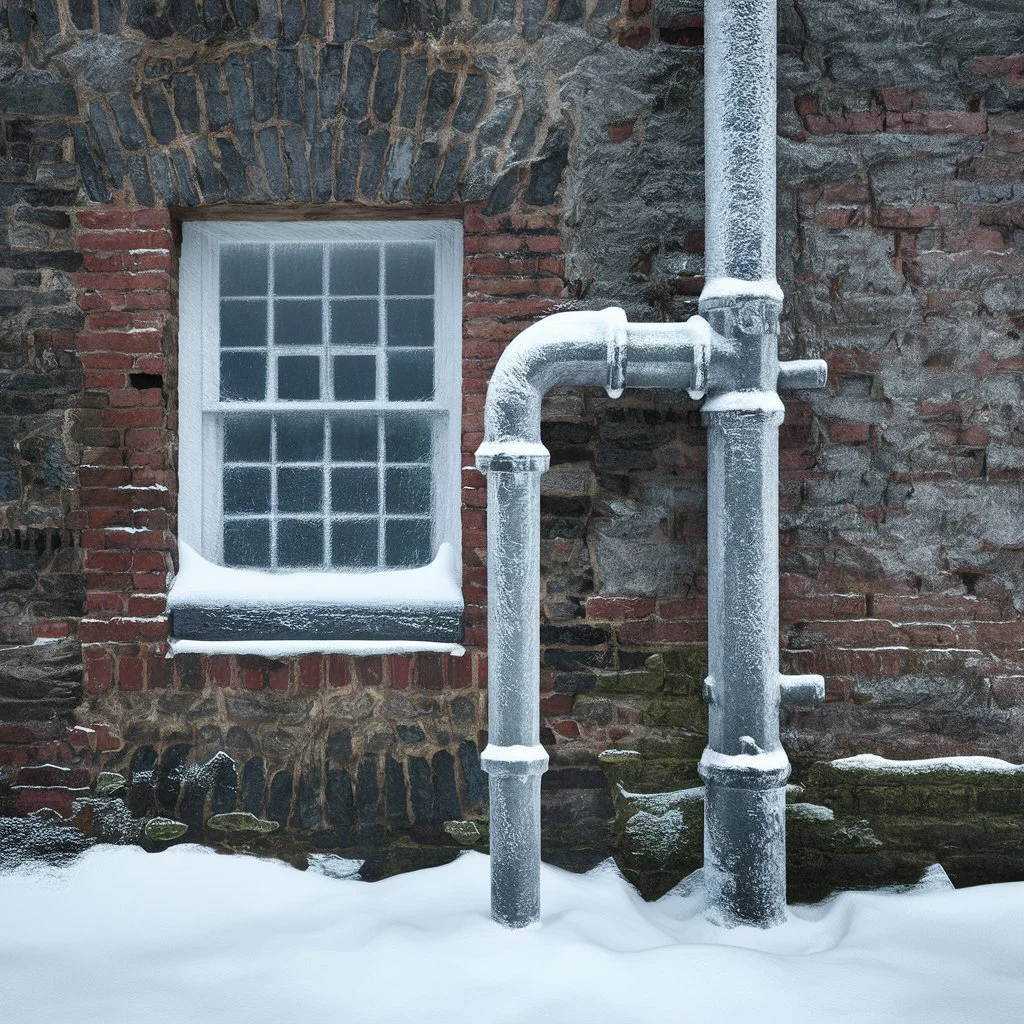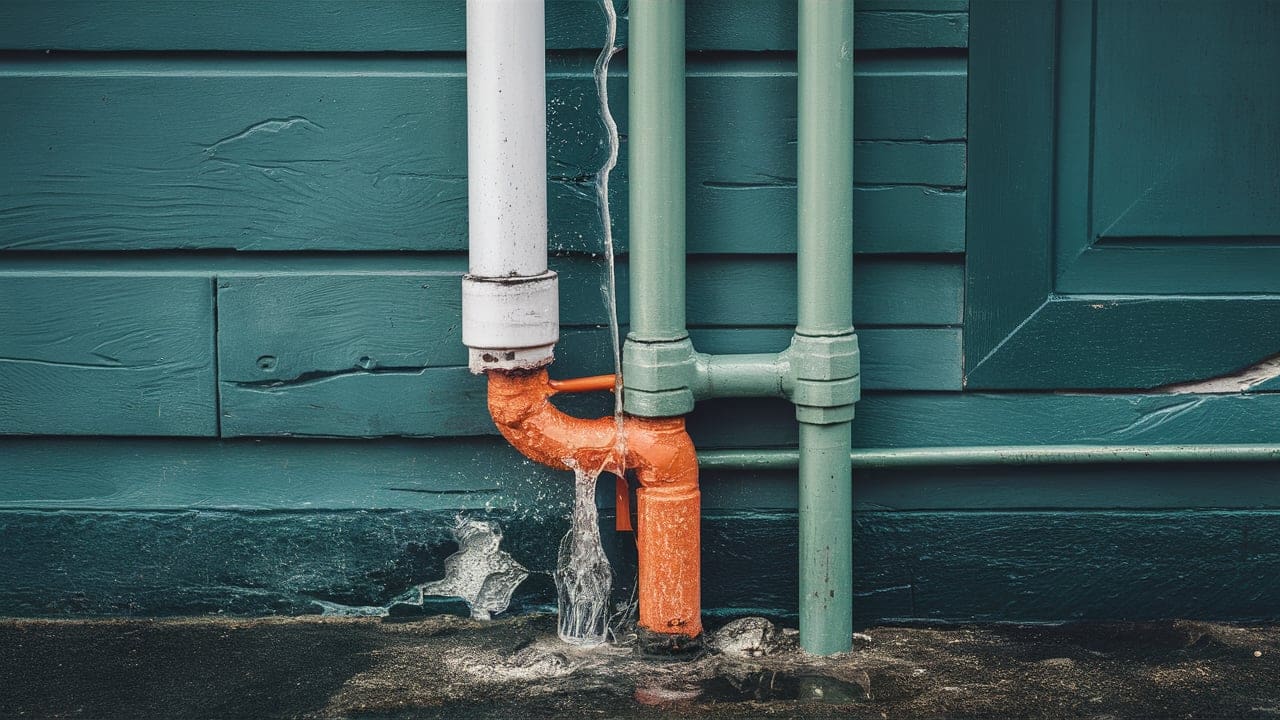When faced with the unexpected disaster of a burst pipe, homeowners often wonder if their insurance will cover the damage. The good news is that water damage caused by burst pipes is typically covered under standard building insurance policies. This type of incident, often referred to as ‘escape of water’ by insurers, is one of the most common reasons for domestic property damage claims. In fact, insurance companies pay out a staggering £1.8 million every day for such claims.
Understanding Burst Pipes and Water Leaks
Burst pipes and water leaks can occur for various reasons, ranging from freezing temperatures to faulty appliances. The damage caused by these incidents can be extensive and costly to repair. Water can seep into walls, floors, and ceilings, leading to structural damage, mould growth, and ruined personal belongings.
Insurance companies categorise this type of damage as ‘escape of water.’ This term encompasses a wide range of incidents, including burst pipes due to freezing temperatures, leaking dishwashers, and even overflowing blocked toilets. The coverage for these incidents is usually a standard feature in building insurance policies, providing homeowners with financial protection against unexpected water-related disasters.
Preventing Leaks and Burst Pipes
While insurance coverage offers peace of mind, preventing leaks and burst pipes in the first place is always preferable. There are several steps homeowners can take to minimise the risk of water damage:
Regular maintenance is key to preventing leaks and burst pipes. This includes knowing the location of your stopcock and testing it regularly to ensure it doesn’t seize up. In the event of a water leak, being able to quickly turn off the water supply can significantly limit the extent of the damage.
Consider installing a leak detection device. These devices monitor your usual water usage patterns and can automatically shut off the water supply if they detect abnormal flow, potentially indicating a leak. It’s recommended to have these devices installed by a professional plumber.
When installing new appliances that require plumbing, always use a professional. This ensures that connections are secure and less likely to fail over time. Additionally, regularly check the pipes where your appliances are connected for any signs of looseness, leaks, or drips.
Be mindful of what you put down your drains. Substances like cooking fats and oils, produce stickers, baby wipes, sanitary products, and even hair can cause clogs in drains and toilets, potentially leading to overflows and water damage.
Regularly inspect areas where pipes are accessible, such as behind removable bath panels, toilet cistern panels, and underneath kitchen units. Look for any small leaks that could potentially become major issues if left unchecked.
Frozen Pipes

Cold weather presents a particular risk for burst pipes. When water in pipes freezes, it expands, potentially causing the pipe to burst. To prevent this, ensure that all pipes and tanks in loft spaces and other areas prone to freezing are properly insulated.
During winter, especially if you’re leaving your property empty for a period, keep your heating on for at least an hour a day. In severe weather conditions, it’s advisable to leave your heating on continuously at your usual temperature setting.
If you discover frozen pipes, turn off the water at the stopcock and carefully thaw the frozen pipes using a hairdryer or hot water bottle. If a pipe has already burst, turn off the water immediately, switch off your central heating and any other water heating installations, and open all taps to drain the system.
Insurance Claims Process for Burst Pipes
If you discover a leak or burst pipe that has caused damage to your property, the first step is to turn off the water supply at the stopcock to limit further damage. Then, contact your insurance company immediately. Most insurers have 24-hour helplines for such emergencies.
Your insurer may arrange for a loss adjuster to assess the damage in detail. In severe cases, they may also arrange alternative accommodation if your home is uninhabitable due to the water damage. The loss adjuster will provide an initial assessment and an approximate timetable for the restoration process.
It’s important to note that while insurers typically respond within 24 hours, response times may be longer during periods of extreme cold weather due to a higher volume of claims.
How Can Loss Assessors Help with Burst Pipes?
When dealing with a burst pipe claim, enlisting the help of a loss assessor can be invaluable. Loss assessors are professionals who work on behalf of the policyholder, rather than the insurance company, to ensure that you receive a fair settlement for your claim.
Loss assessors bring expertise in interpreting insurance policies and negotiating with insurance companies. They can help you navigate the often complex claims process, ensuring that all damage is properly documented and that you receive the full compensation you’re entitled to under your policy.
In the case of burst pipes, a loss assessor can:
Conduct a thorough assessment of the damage, including hidden damage that might not be immediately apparent.
Help you prepare a comprehensive claim, ensuring that all aspects of the damage are included.
Negotiate with the insurance company and their loss adjusters on your behalf, potentially securing a more favorable settlement.
Advise on emergency repairs and help coordinate the restoration process, potentially speeding up your return to normal life.
Provide peace of mind during a stressful time, handling the complexities of the claim so you can focus on getting your life back to normal.
Loss Assessor Dublin
Local loss assessors can provide invaluable assistance for those in the Dublin area facing the aftermath of a burst pipe. These professionals understand the specific challenges of dealing with water damage in Dublin’s climate and housing stock. They’re familiar with local repair and restoration services and can help ensure that repairs are carried out to a high standard, and compliant with local regulations.
Dublin-based loss assessors also have established relationships with insurance companies operating in Ireland, which can be beneficial when negotiating claims. Their local knowledge and expertise can be particularly helpful in navigating any unique aspects of Irish insurance policies and claims processes.
In conclusion, while dealing with a burst pipe can be a stressful experience, knowing that your insurance likely covers the damage and understanding the steps to take can provide some reassurance. By taking preventive measures, acting quickly when incidents occur, and considering the assistance of a loss assessor, you can minimise the impact of burst pipes on your home and your life.

